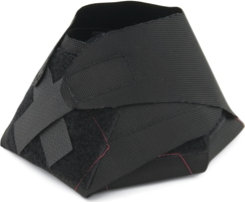Colic can be broadly described as intestinal problem causing a large amount of pain to a horse. There are many different types of Colic but I’m only going to discuss the types that I have experienced in horses.
Sand Colic is a common type of colic resulting from sand accumulating in the horse’s intestines, which I’m going to refer to the stomach and intestines as the gut to keep it simple, which suits me as I am often referred to as a simpleton. The horse owner can and should take steps to prevent the horse from digesting or accumulating sand, such as not feeding on the ground but in tubs, bins or feeders. Even then horses natural graze so they will spend a great deal of time with nose on the ground searching for and picking up left over pieces of feed and therefore in-take sand into their gut. A common test to determine amount of sand in the horses manure (manure in the jar test-click here to go to this post) can be done to see how much sand is in the horses gut and therefore potential for sand colic. Some horses may have as much as 80 pounds or so in their gut!
Sand Colic can cause blockages and a gut rupture or tear, or more commonly, causes such pain as to make the horse throw himself down over and over again and end up twisting a gut. The twisted gut blocks blood supply and the portion of the gut begins, rapidly, to die. This is fatal, unless surgically treated immediately, although it can take a horse several days to die. This is a heartbreaker. I’ve had to put down a young very promising horse. I have also seen twisted guts where the horse goes through short periods of relief which gives the horse owner a false sense of the horse getting better.
Prevention is key and that includes feeding smaller amounts of hay several times a day, rather than one or two large feedings, and, plenty of fresh, clean water for the horse to drink. Some horse people believe in regular treatment through feeding bran mashes or a commercial product such as Sand Clear or Miracle Sand Out pellets. I’m one of those. If a horse of mine exhibits signs of sand in the gut such as very loose manure or diarrhea, I’ll place him on a seven day regime of the above mentioned products, which usually clears up the lose manure or diarrhea in a week. I also routinely give bran mashes, every 7 days or so, which are dry bran mixed with a little corn oil, molasses and Psyllium (Fiber) to a watery mix.
Gas Colic is another common type of colic, resulting in gas buildup in the gut faster than it can be relieved, most likely caused by feeding large amounts of rich feed. First cut alfalfa, not slowly integrated into the feeding program and Sweet Feeds in my experience are two more likely causes. Another cause is rapid changes to the diet. Prevention again includes feeding more often in smaller amounts, slow changes to different feeds such as different cuts of alfalfa.
Symptoms of both Sand and Gas Colic may include the horse standing stretched out; pawing the ground; ears back and eyes looking listless; biting at his side or looking at his sides; trying to lay down or laying down, getting back up again, and laying down again – or actually throwing himself down to the ground.
Treatment of Colic. You need to call a Vet immediately. Be prepared to articulate the symptoms that the horse is showing. If the Vet comes out to look at your horse he/she will examine the horse, will probably administer Fluxomine / Banamine by IV, which is injected directly into a vein for immediate effect, then probably put a tube through the nose into the stomach and pump a water / mineral oil mixture into the gut in an attempt to get any blockages moving and reduce toxins in the gut.
Prior to the Vet coming out you should probably lead the horse around at a walking pace for two reasons, 1 – to utilize the natural movement of the walk to add digestion and 2 - to keep the horse from throwing himself down and greatly increasing the chances of a twisted gut. Some Vets will palpate the horses rear end, that means stick a gloved hand into the butt to see what may be going on in that last part of the intestines. Most Vets will not give the horse a water/mineral oil or straight mineral oil enema, however I think this option should be considered and almost always done – what’s another $10 of mineral oil after the Vet made a Farm Call at 2:00am?
A lot of horse owners keep Fluoxomine/Banamine on hand and will treat the horse themselves if a Vet is not readily available or in hopes of resolving the colic before a Vet is necessary. I’ve treated a lot of horses with symptoms of Colic myself although I would never hesitate to call my Vet and arrange a Farm Call. Sometimes it’s throwing the dice either way, but the sooner the horses receives treatment the better the chances for a recovery.


















No comments:
Post a Comment